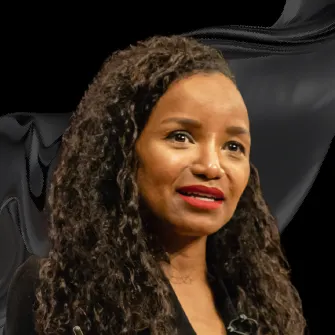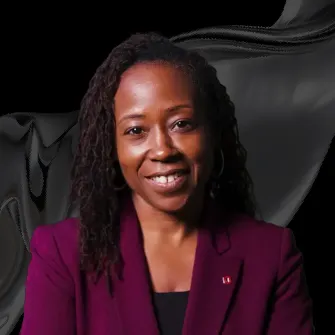From the perspective of researchers who study AI’s core value and how humans interact with machines, the future of the corporate finance function depends on how CFOs keep people involved in the process.
Ayanna Howard, dean of the College of Engineering at Ohio State University, and Renée Richardson Gosline, senior lecturer and research scientist at MIT Sloan School of Management, each study the relationship between human behavior and AI in different ways. Howard looks at the systems and governance side, while Gosline focuses on human judgment and decision-making, two areas CFOs are watching closely as they weigh ROI in technology.
Together, their research and insight point to a common warning for finance leaders: AI is powerful, but without oversight and experimentation, it can dull the very thinking that makes great finance teams and CFOs.
In recent interviews at The World Business Forum’s event in New York City on Nov. 5 and 6, both said CFOs are in a unique position to decide how automation in core business functions will play out. They agree that finance leaders can set the pace, define the guardrails and make sure AI improves performance. Their combined insight offers CFOs a playbook for using AI responsibly in an industry built on precision and trust.
Building smarter systems and teams
New technology can strengthen weak areas of a finance organization, but, as both researchers agree, it can also destabilize what already works. “If you have a strong performing team, AI can actually disrupt that performance,” Howard said. “But if you have a weaker function, AI can only assist and help.” She said CFOs should start small, focusing on processes that need reinforcement rather than departments that already perform well.

The challenge, Gosline added, is knowing when early progress turns into dependency. “When people start to see the efficacy and early wins, they become really reliant upon it, and then the problem becomes overreliance,” she said. In her research, even experienced professionals leaned too heavily on machine output once they saw a few good results.
With this in mind, both said CFOs can protect against that by introducing what Gosline calls “beneficial friction.” In one of her experiments, financial analysts who received simple reminders such as “have a second look” were more accurate than those who relied entirely on automation. “In finance, it can’t be about doing things fast,” she said. “It’s about doing them accurately. Adding friction keeps humans engaged and prevents overreliance on the system.”
Howard also said pacing adoption is just as important as choosing the right tools. “Digital transformation doesn’t come cheap,” she said. “Be intentional about the groundwork you need to get there, and how fast you’re willing to move.” Controlled pilots, she added, may allow CFOs to measure results before expanding across functions. “When you build that into your planning, you can prepare your talent and your investors,” she said. “It lets you control the pace of change instead of being controlled by it.”
Running experiments, Gosline also said, is one of the best ways to reduce risk. “People are afraid of experiments because by definition you don’t know exactly what’s going to happen,” she said. “But if you can do it in a small, controlled, minimal fashion, you can actually reduce risk.”
Keeping the human essence via controlled experimentation
Automation may make some work more efficient, but both Howard and Gosline warn that it can also strip away opportunities to develop judgment. Gosline said she is concerned about what happens when companies remove too many entry-level positions, a phenomenon that has become a serious trend in public accounting. “If we eliminate junior folks and replace human labor with agents, we remove a foundation that is fundamental to people who are in senior leadership,” she said. “It’s much harder to go back and pick that up than it is to build it along the way.”

Howard spoke extensively on how CFOs should view upskilling as an ongoing responsibility. While the temptation to treat upskilling as a box-checking exercise, she said it’s pivotal for CFOs to have a hand in developing the makeup of upskill offerings. “There should be a general, shallow kind of training for everyone so people aren’t afraid,” she said. “Then you go deeper with specific groups, like accounting or audit, where you can teach them what it means to use these tools in their daily work.”
That process, Howard added, must give employees room to learn through practice. “If you learn it and you’re not able to practice, it doesn’t mean anything,” she said. “But you also don’t want them to practice on something that is mission-critical.”
Gosline said these smaller, low-risk exercises are what keep critical thinking alive. “You can’t replace what they’ve lost if they’ve abdicated their critical thinking,” she said. “Beneficial friction keeps people sharp.”
Oversight, both agree, should be spread across the organization rather than assigned to a single AI officer. “You need someone whose responsibility it is to think about this systemically,” Gosline said. “But you also need people deployed on teams that have this role. You need distribution throughout the organization.”
“You will always need a human in the loop, because when AI learns from AI, that’s where hallucination and errors are highest.”

-Renée Richardson Gosline
Research scientist and senior lecturer, MIT Sloan
Howard added that CFOs can strengthen that culture by being transparent about where disruption will happen. “Sometimes companies have an incubator or sandbox in the CTO office,” she said. “The CFO can plan for those investments years out and tell investors that this function or process will be disrupted. It allows everyone to understand that margins will shift and that the change is planned.”
Mixing curiosity with clarity
AI may change how finance operates, but Gosline reiterated that leadership still depends on communication. She said in her opinion, the best speakers and executives are those who can translate complex ideas for people outside their specialty. “My family doesn’t come from academics,” she said. “It’s always been important to me to convey what I’ve learned to people outside that world. It’s gotten me to synthesize complicated stuff in a way that allows me to talk to anybody about it.”
Howard encourages CFOs to seek out similar opportunities. “Go talk to students,” she said, instructing finance leaders who want to tweak their communication skills to seek speaking opportunities with finance students at their local colleges. “They’ll ask tough questions and give you honest feedback. because they’re not your customers or your clients. So, if you can ask them how you did, they’ll tell you,” she said.
Gosline stressed the value of the ability to simplify language among CFOs. “People want to sound smart,” she said. “But in their zeal to show expertise, they may leave people behind because they’re talking to themselves. When you’re public speaking [at your organizations], remember you’re still speaking to the public.”
That same clarity applies in the boardroom. Howard said CFOs should frame their presentations around portraying clarity in their message. “When you’re presenting numbers, talk about the potential downsides and the upsides,” she said. “What does it mean if you get it right, and what does it mean if you get it wrong?”
Both see AI as a tool that magnifies the need for CFOs to strengthen their communication skills and elevate human ability, rather than replace them. “You will always need a human in the loop,” Gosline said. “Because when AI learns from AI, that’s where hallucination and errors are highest.” And, Howard said the same rule applies to leadership. “AI can help you,” she said. “But you still have to be intentional about the people and the process. That’s how you make sure it’s worth the investment.”
For CFOs steering their companies through AI transformation, both researchers agree on one central idea: Progress comes from balance. Technology may power the future of finance, but people will always define its success.





